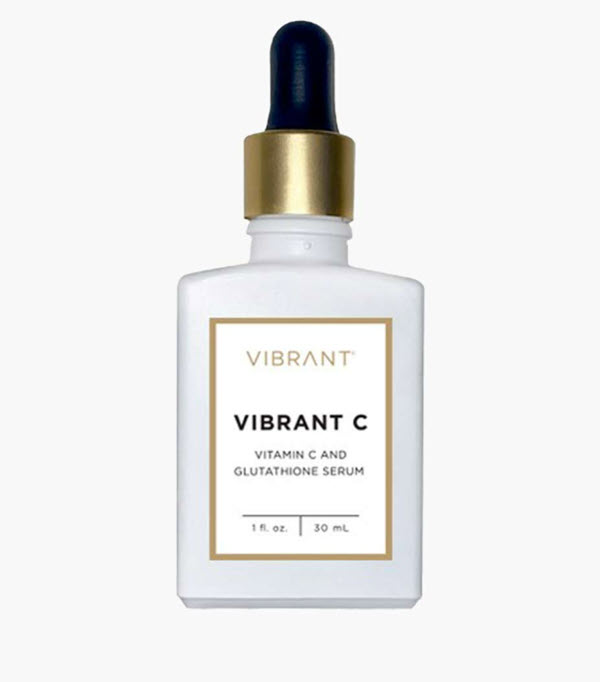Glutathione is a powerful antioxidant that's made in every cell of the body. It is also a tripeptide composed of three amino acids - cystine, glutamic acid, and glycine. It is known as the master antioxidant.
Antioxidants play an important role in skin health. They neutralize free radicals responsible for DNA degradation and resulting skin concerns, such as dry skin, acne, and aging signs. Glutathione is one of the most potent antioxidants in skin care.
Glutathione levels may decline for a number of reasons, including poor nutrition, environmental toxins, stress, and aging. Cosmetic products and supplements with this ingredient can help enhance its beneficial effects.
This article lists eight benefits of glutathione for the skin and recommends how to use it in skin care.

What Does Glutathione Do for the Skin?
People are more familiar with the cosmetic effects of vitamins C and E, but glutathione provides as many benefits as these nutrients and is considered a more powerful antioxidant.
Glutathione is also known to enhance and stabilize the performance of other antioxidants like vitamin C by helping to regenerate it and maintain its active form.
The following properties make glutathione a superstar ingredient in anti-aging skin care.
1. Neutralizes Free Radicals
Free radicals are unstable elements that occur due to harmful external and internal factors, including pollution, UV radiation, stress, and poor nutrition. Free radical buildup in the body causes oxidative stress, responsible for various diseases and premature aging signs.
Glutathione binds with free radicals, neutralizing their damaging activity.
2. Lowers Inflammation
Inflammation is the body’s response to physical or emotional injury, characterized by a buildup of white blood cells, which defend the body from invading factors. Glutathione plays a crucial role in supporting the immune system by protecting white blood cells from oxidative damage and helping to modulate their activity. This helps reduce chronic inflammation and may benefit inflammatory skin conditions, including psoriasis and eczema.
Note: Learn how probiotics help reduce inflammation and improve related skin concerns.
3. Reduces Hyperpigmentation
Hyperpigmentation is a skin condition that causes patches of darker skin and uneven skin tone, including freckles, dark spots, and melasma. It occurs when the body produces too much melanin in an attempt to defend itself from a perceived threat.
Glutathione can inhibit the activity of enzyme tyrosinase, which is linked to melanin production. By lowering tyrosinase and melanin, glutathione helps reduce hyperpigmentation and restore the skin’s natural glow.
Note: Learn more about IV drips for glowing skin – an injection of vitamins and minerals (including glutathione) that help nourish, protect, and visibly brighten the complexion.
4. Protects from Environmental Damage
As an antioxidant, glutathione neutralizes free radical damage caused by UV rays and other environmental stressors. It decreases their accumulation and helps detoxify the liver from chemical toxins and air pollutants, which destroy the skin cell DNA and cause premature aging signs. Increasing glutathione levels helps to repair and clear the complexion.
5. Helps Maintain the Skin Barrier
The skin barrier is the skin’s outermost layer that helps the body maintain optimal hydration and protects it from environmental aggressors (pollutants, bacteria, etc.). A compromised skin barrier leads to a host of health and skin concerns, including dry skin, inflammatory conditions, and aging signs. Glutathione plays an important role in maintaining and restoring skin barrier function by defending it from toxins and pathogens and repairing UV-induced damage.
6. Improves Skin Elasticity
Firm, youthful skin depends on the health of its structural proteins, collagen and elastin. Environmental factors and poor lifestyle habits degrade them, causing premature aging signs and loose skin. Glutathione’s antioxidant and anti-inflammatory properties help preserve collagen and elastin fibers, maintaining skin elasticity. The nutrient’s brightening properties also contribute to the appearance of smooth, even skin.
7. Reduces Wrinkles
Wrinkles are the first and most apparent sign of aging. They result from a combination of factors such as decreased collagen and elastin production, loss of hydration, and cumulative damage from environmental factors like UV exposure.
Glutathione’s antioxidant, photoprotective, and collagen-boosting properties make it an effective component in anti-aging skin care, helping to repair fine lines, wrinkles, loss of elasticity, and dullness.
8. May Help Inflammatory Skin Conditions
Acne is an inflammatory skin condition resulting from sebum, dirt, and bacteria clogging the pores. Glutathione’s anti-inflammatory properties promote a healthier skin environment, mitigating the conditions that allow bacteria to thrive. They also help soothe red, irritated skin associated with acne.
Note: Learn about more glutathione benefits for overall health, including immunity, brain function, and mood.
Is It OK to Take Glutathione Every Day for Skin?
The optimal frequency of glutathione use depends on how it is taken. Though it’s naturally produced in our bodies, levels decrease due to various factors, from aging to lack of sleep. People can increase concentrations by consuming glutathione-rich foods, taking supplements, applying it topically, and injecting it via IV therapy.
Topical products with glutathione are safe to use daily, even for sensitive skin. A combination of glutathione and vitamin C (such as this bioavailable vitamin C and glutathione serum) is especially effective for a stronger skin barrier, reduced aging signs, and glowing skin.

Oral supplements may not be right for every patient. They can cause zinc deficiency with long-term use, so talk to your medical provider before starting a new supplement.
Glutathione injections provide quicker and more powerful benefits than other forms of glutathione. They can be administered several times a month, as prescribed by your medical provider.
Note: Learn more about how to take glutathione effectively.
What Happens to the Skin When You Stop Taking Glutathione?
Glutathione provides temporary skin-enhancing effects. Once a person stops using glutathione products, the skin reverts to its previous state. The extent of changes after stopping also depends on other factors like diet, hydration, sun exposure, and other skincare habits.
Conclusion
Glutathione is an emerging star ingredient in skincare products. Its powerful antioxidant, anti-inflammatory, and brightening properties provide a host of benefits for the skin. The safest way to use it is in serums and creams. Contact our experienced skincare professionals at Vibrant Skin Bar – they will recommend the best products and strategies to help you reach your cosmetic goals.


